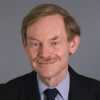Robert Zoellick

Robert Zoellick
Robert Bruce Zoellickis an American banker who was the eleventh president of the World Bank, a position he held from July 1, 2007 to June 30, 2012. He was previously a managing director of Goldman Sachs, United States Deputy Secretary of Stateand U.S. Trade Representative, from February 7, 2001 until February 22, 2005. Zoellick has been a senior fellow at his alma mater Harvard Kennedy School since retirement from the World Bank in July 1, 2012...
NationalityAmerican
ProfessionPolitician
Date of Birth25 July 1953
CityNaperville, IL
CountryUnited States of America
The American steel industry faces a turning point. We believe the actions the president is taking today can restore the strength and profitability of this very important American industry.
It's hard for me to believe that in the position we're in now we'll be able to finish on time,
The United States knows that as a follow-through on the peace that was negotiated (in January 2005), there's a very important element here of building a strong government of (southern) Sudan, which we believe will contribute to a strong Sudan,
I've always believed that openness is America's trump card.
I believe there is a right balance of interests that can be found to enable us to launch the multilateral negotiations at the upcoming ministerial meeting. It's very important for the global economy that we do so, and it's very important for world politics that we do so,
We are going to have to give these people a chance to get back on their feet.
I will be emphasizing that the leaders who engage in corruption and their associates will have no place with the United States.
It is a very fluid situation ... the process of SLM coherence is proceeding.
We are too interconnected to try to hold China at arm's length, ... It is time to take our policy beyond opening doors to China's membership into the international system, we need to urge China to become a responsible stakeholder in that system.
We are too interconnected to try to hold China at arm's length, hoping to promote other powers in Asia at its expense.
It is clearly the case that programs in Europe and the United States that have increased biofuel production have contributed to the added demand for food.
Great upheavals produce shock waves that widen cracks in political, economic, and security orders. Sometimes the old orders break. Yet it can be in the power of leaders and peoples to shape the directions of change.
An empowered public is the foundation for a stronger society, more effective government, and a more successful state.
It is much harder for economies to prosper if they cannot sell to, buy from, invest with, and even transit their neighbors. Landlocked countries with failed or failing neighbors can lose access to the world economy.